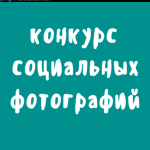Business Climate of Kazakhstan: View of our Austrian Partners
Austria is a well-recognized leader in Europe in the area of development of new technologies and innovative development of industries. It is not by chance that cooperation in this area was among the goals of the visit to Vienna of the Kazakhstani delegation headed by the Minister of Industry and New Technologies Aset Isekeshev on February 21–23, 2011. The main achievement was the entering into a Declaration between Austria and Kazakhstan as to the priorities and goals of economic cooperation until 2015. In essence, there was approved the Road Map of partnership relations, which is seen to bring them to a quite new level. The Road Map comprises 40 joint projects of the total value of more than 1 billion Euros. In many respects, the successful implementation of these projects will depend on the conditions Kazakhstan will provide to its Austrian partners. We ask the spokespersons of the Austrian businesses operating in Kazakhstan to tell us how they assess the investment attractiveness of our country today:
- How do the Austrian companies assess the business climate in Kazakhstan?
- What should be done by the government of Kazakhstan to increase investment attractiveness of the non-raw material sectors of the economy?
- What are your further plans of business development in Kazakhstan?
Hans Holzhacker, Chief Economist, ATF Bank
1. Austrian companies appreciate the fast development of the country and its potential not only in the resources sectors, but in general. There are ample opportunities in infrastructure projects such as upgrading of the railways, road construction, power and water supply. In services such as trade, tourism and last but not least banking is sufficient room for cooperation too.
Big efforts have been made to streamline regulation, but there is substantial room left for doing more, particularly further reducing the number or required documents and for concentrating the responsibilities for primary contacts and applications in the hand of fewer institutions.
As in other middle-income countries shadow economy and corruption are issues; it is however possible - and wise - to stick to the rules and avoid to become trapped in non-legal schemes, if the product or service offered is strongly needed in Kazakhstan.
Rather strict local content requirements sometimes slow the business development; however, long-term they not only promote import substitution (warranted not always, but in a substantial number of cases), but also contribute to enhancing the qualifications of the local workforce, sometimes currently a bottle-neck for specific projects.
The broad range of opportunities together with the rather stable political environment and relative high (for middle income countries) regulation certainty – though there is room for improvement – and also the rather high predictability of the economic policy provide for a business climate on the favorable side relative to comparable pears.
2. One measure would be to return to pre-crisis plans for further reducing the corporate income tax rate from currently 20%, at least for SMEs. This would not only put the SMEs – most of them in the non-resources sector - in a better financial position but also reduce tax avoidance and corruption. The increase in the dependence of government finances on oil can – and currently is – counteracted by the prudent behavior and the savings of the National Oil Fund.
Special economic zones which have a specific focus (tourism, IT) and provide the corresponding infra-structure might be another useful measures to develop the non-resources sector. Such SEZs are already in place and are being further developed by the authorities.
Subsidizing interest rates on loans for specific projects and categories of companies – as currently done by the authorities might also promote the non-resources sector to some extent, though involving a significant amount of burocracy.
3. We intent to further expand and upgrade all banking services, with currently a focus on utilizing the UnigreditGroup network for offering complete cross-border solutions, particularly for companies or also individuals operating in more than one European or CIS country.
Edda Fischer, Executive Director, VAMED Management and Service, Office Astana
1. Kazakhstan is a young state, which in a surprising way managed to overcome the difficult post-Soviet times and even the economic recession. In contrast to other Central Asian states, Kazakhstan made every effort to make the country open, stable, tolerant and progressive. The country is distinguished by rapid development and successful achievement of its ambitions goals. Nevertheless, despite the steady growth in the economic performance indicators, Kazakhstan still remains a “Terra Incognita” for many companies, especially small ones. Kazakhstan attracted the world’s public attention by conducting the OSCE summit and Asian Winter Games 2011. This, in its turn, contributes to the readiness for investments and trade.
The VAMED Company has extensive experience in design and construction of medical facilities and has implemented more than 500 projects in 50 countries of the world. However, even for us the work Kazakhstan is a real exam which we are going to pass successfully.
2. In the last few years Kazakhstan did a great deal of work to regulate the legal framework conditions on customs procedures, taxes and licensing with the purpose to increase its investment attractiveness. This has led to the economic and infrastructure stability of the country. On this basis it is possible to further develop the social-related areas, such as healthcare, tourism, sport and culture. With this, the necessary measure here should be the improvement of the educational level and raising the level of skills of the population, since in such a low density country as Kazakhstan, the requirements that are set to every citizen are tougher. The important factor, except for education, is the improvement of life quality and comfort. Measures were taken and are taken to improve the population’s health and introduce international standards in the healthcare sector. For example, VAMED is the first foreign company which manages Astana-based privatized JSC The National Scientific Center for Motherhood and Childhood, which is part of the JSC The National Medical Holding Company’s structure.
We would like to recommend to the government for the future to support further privatization and to remove legal and bureaucratic barriers. Thus, in the structures closely connected to the public agencies, the model of the state-and-private partnership is an interesting option of full privatization.
3. The VAMED Company is the provider of services in healthcare. The company provides integrated solutions, based on the principle “everything from one hands”. We are interested in constant improvement of the healthcare system in Kazakhstan that will add to strengthening of the economic relations between Austria and Kazakhstan. On the one part, through the construction and equipping of hospitals, it is necessary to provide adequate infrastructure possibilities for your population. Apart from management of the medical facilities it is necessary to introduce other consulting services for efficient spending of funds in the healthcare sector.
In the future, we hope to enter the market of services in the area of health improving, disease prevention and recovery. This all provides many opportunities for improvement of the quality of life of the population in Kazakhstan.
1. From the viewpoint of our business that provides end-to-end solutions for ideal organization of office space, including office furniture, partitions and interior, the investment climate is assessed by the number of companies, which open their representative offices or expand their businesses, moving to larger offices. Three years ago when we stared our activities in Kazakhstan, it seemed that that it was almost impossible to compete with the cheaper products from China and Russia. However, despite the complicated financial situation in February 2009, we launched our business successfully. Today among our clients, there are many international and Kazakhstani companies, and the number of those who wish to equip their offices at the highest international standards is increasing. Also, the scope of new business centers launched into operation increases and, in general, construction goes at an accelerated pace. Judging by these signs, we assess the investment climate in Kazakhstan as quite favorable.
2. The government of Kazakhstan does a great deal of work. I am proud of my country, where I was born and live. Along with that, the reduction in customs duties and tax payments could help those companies as ours in that matter that we could offer products of the highest quality at a more attractive price to the Kazakhstani consumers. Of course, special attention should be paid to development of infrastructure and improvement of the demographic situation.
3. We are examining a question of opening a new office and demonstration hall soon. In view of the fact that we offer not just a high-quality product with a guarantee of seven years and more, but many accompanying services, such as for example the post-sales services, so even having one client here we have to be here for at least seven years.. and we have several dozens of such clients now… This evidences that the Bene AG Company has long-term plans of its presence in Kazakhstan.
Elena Parlayan, General Director, Schaller-Kazakhstan
1. Of course, we cannot say on behalf of all the Austrian businesses operating here. However, from the viewpoint of Schaller we can say the business climate in Kazakhstan is attractive for sure. In the World Bank’s rankings of 183 countries for business climate improvement, Kazakhstan is up 15 points to 59th, compared to the last year indicators. Based on the 2010 year’s results, among the republics of the former Soviet Union, Kazakhstan ranked first in the reforms that are aimed to facilitate the running of business. It really feels in practice, and not only in the last years, but from the very beginning, when in 2003 Schaller set up a representative office in Kazakhstan. The evidence of that level is the stable political situation, laws enacted to preserve and develop the business climate attractiveness, and the large potential of the market. We are satisfied that the meet processing market in Kazakhstan appreciated our innovative technologies and equipment.
2. It is necessary to facilitate the procedures for setting up new ventures, to create stable conditions for capital investment, to provide temporary benefits for the period of the start-up of business. Also, it is necessary to do all at the legislative level to make the interests of the foreign participants protected as much as the interests of the Kazakhstani enterprises. This should be done so that the investors can feel comfortable and protected in our country, so that the laws would not exist on their own, but represent the guarantees in the protection of the rights of investors, whose investments play a big role in development of the economy of Kazakhstan.
3. We will continue focusing on our major lines of activity. As a result, we will be able to provide even higher competency, extensive knowledge and experience as a comprehensive approach in the area of meat processing. Of course, our task in the future will be the increasing of efficiency and profitability of our customers due to provision to them of the instruments and technologies that are required for achieving the set goals. From the very beginning of the company operation we put an emphasis on that, and we continue aspiring to this in our activities.
In conclusion, I would like to express gratitude for the work done and fruitful and positive cooperation to all those whom we have been working with – our customers and partners.










